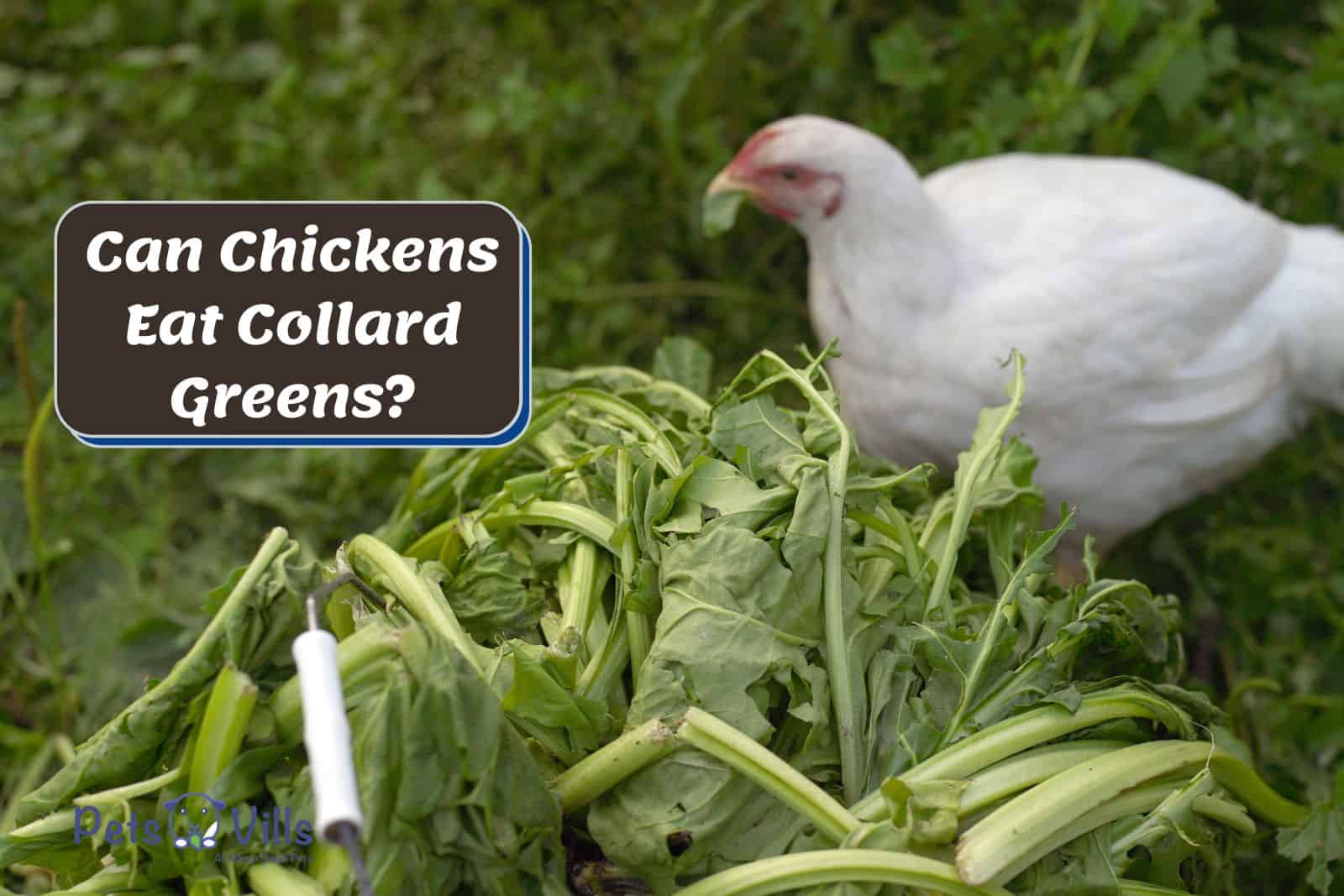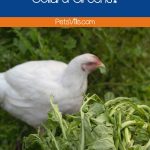Can chickens eat collard greens? Of course, they can. Chickens can and will try to eat anything you give them. But is it harmful or beneficial for them?
Your job as a chicken owner is to veto their diet and provide nutritious treats to supplement their health. What better snack for chickens than a healthy vegetable with high-water content that is also great for your chicken’s digestive health? (1)
Table of Contents
Key Takeaways
- Chickens can eat collard greens in moderation.
- Collard greens consist of Fibers, Minerals, and Vitamins A, Vitamin C, Vitamin E, Vitamin B6, and Vitamin K (2)
- These leafy greens also provide a small dose of calcium.
- Supplementing your chicken’s diet with collard greens can improve overall health and bone density
Continue reading for a plethora of information regarding the health benefits of this green vegetable and how to supplement your backyard chicken’s diet with nutritious snacks.
Beneficial Nutrients Found in Collard Greens
So, can chickens eat collard greens? Yes. One thing you’ll have noticed by now is that chickens are a very resilient breed and can safely consume most vegetables with gusto.
Hence in addition to their regular feed, it is highly recommended to add vegetables as a supplementary source of nutrition.
This vegetable is well known to improve a chicken’s digestive issues, skin, and feathers. The best method of administering the full extent of this vegetable’s nutritional content is by mixing it up with other vegetables for a higher nutritional value.
With its rich fiber and vitamin constitution, it is immensely helpful for removing unwanted health issues.
Collard greens are a great source of nutrients. They are helpful for getting rid of a large amount of the chickens’ nutritional deficiencies. These vegetables provide a plethora of extra nutrition, here are a few facts about these leafy greens’ nutritional value.
Vitamins Present in Collard Greens
Collard Greens provides a wide variety of nutrients. Collard Greens is an excellent source of vitamin A, B6, and C. It is also a great source of dietary fiber and possesses high water content while maintaining low sugar content.
Like all organisms, chickens also require these vitamins in healthy amounts to ensure their health. Healthy vitamins ensure a disease-free life.
Vitamin A
Collard greens are a great source of vitamin A. Vitamin A is important to maintain good eyesight and a healthy growth process. Vitamin A intake is a major part of a balanced diet. (3)
Lack of vitamin A causes night blindness and eye impairments. It also causes delayed responses and weakness in the immune system which may lead to early death.
Vitamin K
Vitamin K is among the most essential vitamins that regulate egg growth. Vitamin K plays a role in blood clotting, bone health, synthesis of proteins, and most importantly, the development of egg embryos in chickens.
Vitamin K is also essential in healing from minor and major internal and external injuries. A delayed blood clotting process on any injury may arouse other chickens’ cannibalism interests.
A deficiency of vitamin K can result in devastating internal bleeding and red blood spots inside the egg
Vitamin C
Any food containing vitamin C should be given to chickens in moderation as an excess of vitamin C can result in devastating effects. (4)
Chickens suffering from an excess of vitamin C have a poor calcium absorption mechanism. This causes the eggshells of the eggs of chickens to become brittle and soft, greatly affecting egg production.
This is mostly due to the fact that vitamin C is generally synthesized by chickens internally and they can also maintain vitamin C concentration by themselves. External sources of vitamin C cause the aforementioned effects.
However, the deficiency of vitamin C is equally dangerous as it can cause heat stress in chickens. This is especially deadly in climates with high temperatures and humidity. Heat stress is among the leading causes of death in poultry farming to date.
Various Collard Greens and Vegetables Loved by Chickens
The best part about raising your backyard chickens is that unlike raising children, they won’t complain about eating their greens.
In fact, they’ll even enjoy it and want more. This lovely species would even treat their greens as tasty treats. What more could you want?
Here are a wide variety of vegetables that chickens enjoy eating with a passion:
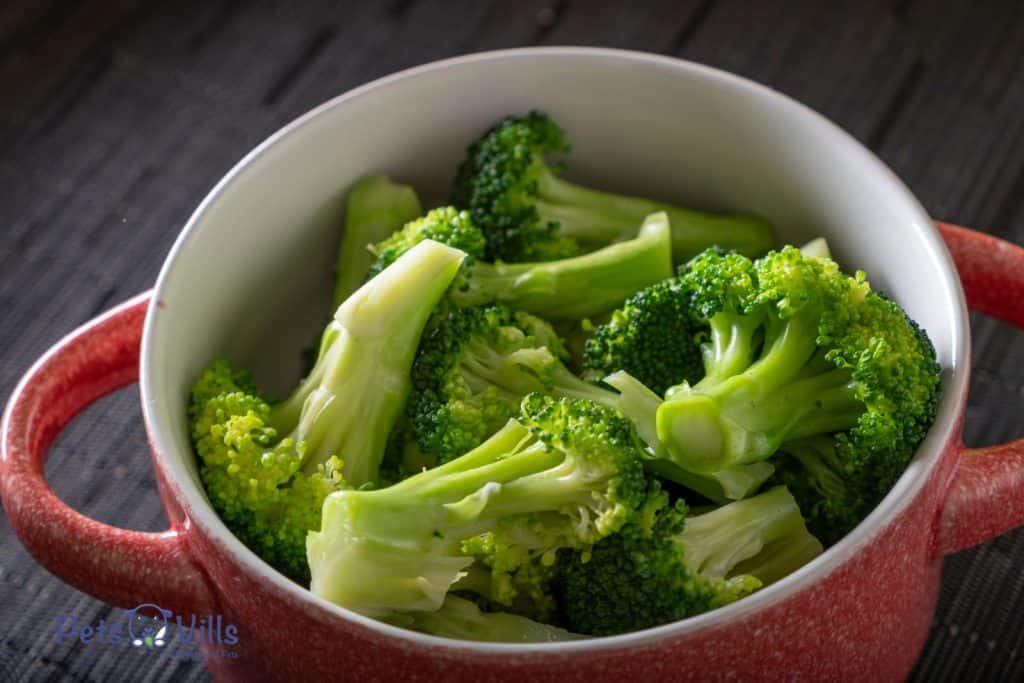
- Broccoli (Technically, it’s not a vegetable but a man-made edible plant)
- Tomato (High in vitamin A. It also contains large amounts of potassium and beta carotene.)
- Carrots (Full of vitamins A and C. A great source of fiber)
- Spinach (A healthy source of calcium, manganese, iron, and fiber)
- Kale (A large source of vitamins C and K. A good source of calcium as well.)
- Squash (Contains vitamins B, E, and crude proteins. Best fed to chickens raw.)
- Green Beans
- Watermelon rind
- Sweet Potatoes
- Bean Sprouts
- Radish Leaves
- Rhubarb Leaves
How To Prepare Collard Greens
Chickens enjoy eating collard greens in both cooked and raw form. They enjoy eating their plant stems as well as everything else in the vegetable.
In fact, the entire vegetable is completely edible and healthy to note. By grinding the collard greens into small, tiny pieces, the chickens can then use their tiny beaks to feed on them.
A healthy salad consisting of kale, lettuce, broccoli, spinach, and/or turnip greens would be one nutritious food even commercial feed can’t top, everything that you can grow at home.
Here’s a video showing how to feed collard greens to your chickens fresh from your own back garden:
However, that’s not to say that collard greens can replace their normal daily intake of chicken feed. Your chickens can be fed both collard greens and chicken feed in their own moderate amounts.
Enhance your understanding of chicken diets by checking out our engaging articles on “Can Chickens Eat Okra?” and “Can Chickens Eat Tomatoes?” – essential reading for anyone keen on poultry care.
Frequently Asked Questions
1. What are Collards?
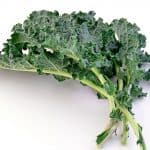
Collards are a group of large, leafy green vegetables with thick, tough stems. They consist of kale, various types of turnips, and mustard greens.
2. Am I supposed to wash my collard greens before feeding them to my chickens?
Yes, washing is a great way of removing all sorts of bacteria from the collards and it should be done before feeding your chickens. It saves your chickens from unwanted diseases.
Conclusion
Can chickens eat collard greens? After everything has been said and done, it comes as no surprise that collard greens are indeed, very healthy and an unquestionably great choice for feeding your chicken farm.
Their nutritional value is extremely high and is second only to their normal daily chicken feed.
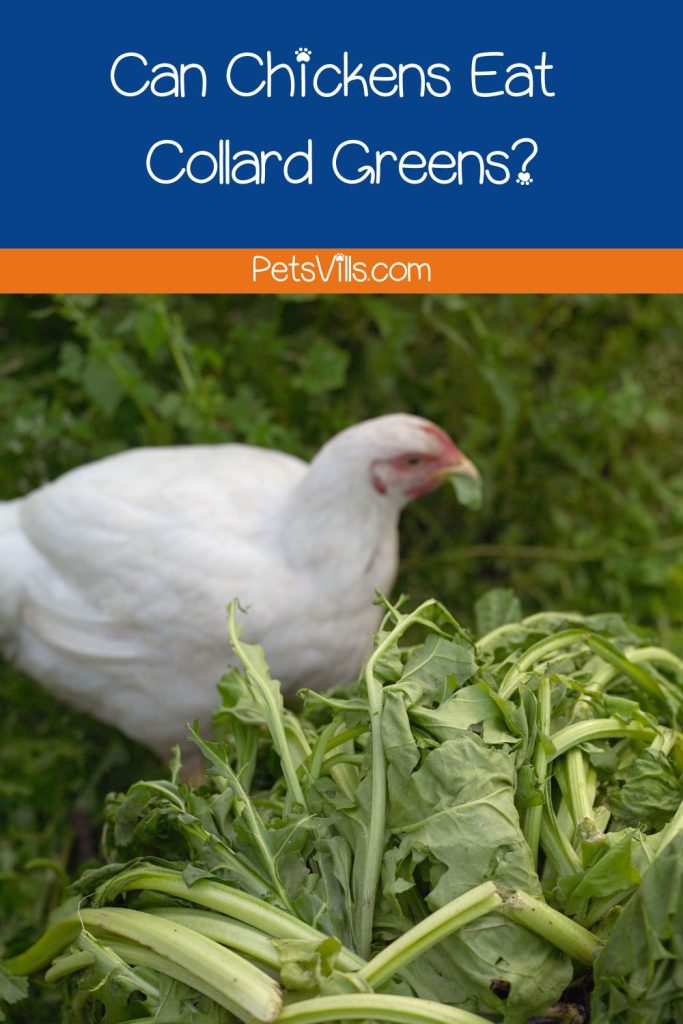
References:
1. WebMD Editorial Contributors. Health Benefits of Collard Greens [Internet]. WebMD. WebMD; 2020. Available from: https://www.webmd.com/diet/health-benefits-collard-greens/
2. Collard Greens Nutrition Facts and Health Benefits [Internet]. Verywell Fit. Available from: https://www.verywellfit.com/carbs-and-calorie-information-for-collard-greens-2242484
3. AnimalDVM LLC. Vitamin A deficiency in Chickens [Internet]. PoultryDVM. Vitamin A deficiency in Chickens; 2017 [cited 2023 Feb 16]. Available from: https://www.poultrydvm.com/condition/vitamin-a-deficiency
4. Benefits of using vitamin C for chickens in poultry battery cages [Internet]. Industry information of poultry. [cited 2023 Feb 16]. Available from: http://www.chickencageplant.com/benefits-vitamin-chickens/
Alina Hartley is a small-town girl with a ginormous love of bearded dragons. It all started with Winchester, a baby bearded who was abandoned at the shelter by his former owners because of a birth defect that caused one front leg to be shorter than the other. Alina originally went to the shelter looking for a guinea pig, but one look at Winchester and it was love at first sight. From that day on, Alina has dedicated her life to learning everything she can about bearded dragons. She loves helping new beardie parents start their incredible journey with these magnificent reptiles.
Follow her on:
LINKEDIN
TWITTER.
Read her latest articles HERE
Learn more about her HERE.

